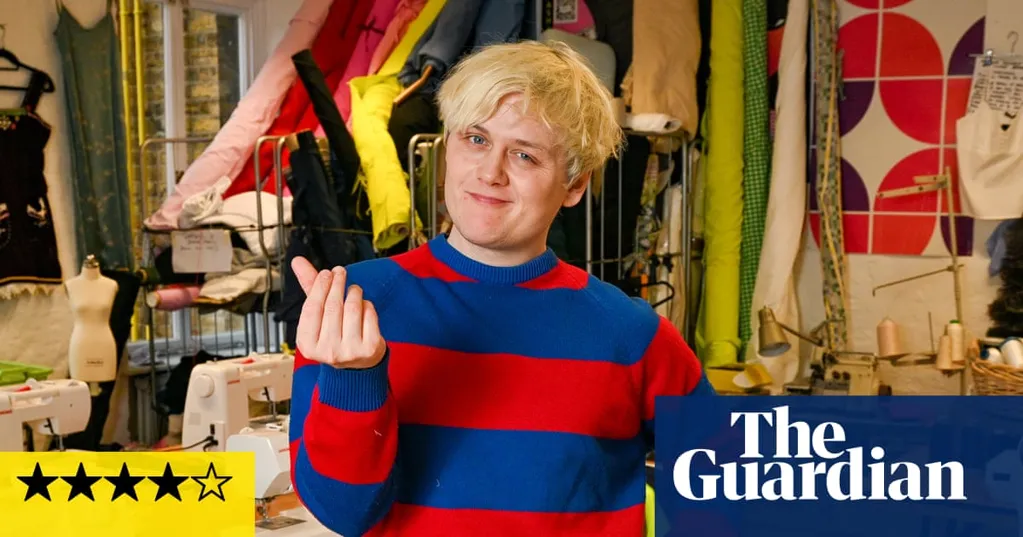Lovable prankster-satirist Oobah Butler takes on hustle culture by trying to get rich quick. His tour of crypto-CEOs exposes the bleakness of their world - but it sure makes for comedy gold.
Near the start of this hilarious and ambiently horrifying documentary, presenter Oobah Butler informs the viewer what exactly is riding on the success of his latest stunt. Emerging from a meeting at Channel 4's headquarters, he floats a contract in front of the camera. In signing this, Butler claims, he is "guaranteeing that I am going to make a million pounds in 90 days". If he succeeds, he'll be a rich man. If he fails, "I suppose I won't be working with Channel 4 again."
If Butler is yet to make it on to your radar, those stakes may sound negligible - does it really matter whether this man ever makes another TV programme? To that I say: yes, it absolutely does. Over the past decade, Butler has established himself as one of the most enjoyably idiosyncratic prankster-satirists of the modern age. He gained global attention with a 2017 project for Vice magazine, in which he managed to get a completely fictional establishment - "The Shed at Dulwich" - listed as London's top restaurant on TripAdvisor, questioning the effectiveness of the algorithm (when TripAdvisor became aware that it was a fake, they took it down).
In his first Channel 4 documentary, 2023's The Great Amazon Heist, he applied his irreverent tactics to a bigger (the biggest?) target, revealing lax age restrictions (by getting children to order knives via Alexa) and poor working conditions (which Amazon denied). With deadpan humour and a relentlessly left-field point of view, Butler specialises in highlighting the void - of value, of morality - at the heart of the forces that shape our world.
Yet in How I Made a Million in 90 Days, Butler takes a different tack. Rather than scamming the scammers, he decides to join them in their grift. Noting how fixated gen Z are on becoming entrepreneurs and startup founders, he attempts to use the get-rich-quick schemes of social media business gurus to drastically inflate his net worth.
Initially, Butler's exploits are just wildly funny. First, he binges on the advice of the movement's gods - your Steven Bartletts, your Luke Belmars. Then he starts a business. With no time for growth, he decides to produce outrageous limited-edition products that will generate hype and give his company value. To achieve this, Butler enters troll mode, establishing the "first legal child sweatshop in Britain in over a century". Using a legal loophole, he (sort of) gets kids to manufacture a new line of football shirts. But these aren't any old football shirts: in a pastiche of the "amoral shite" on Premier League strips, these are fabric paeans to cigarettes, shaped by a cackle-inducing brainstorming session with a group of sparky primary schoolchildren.
It's great value comedically, but Butler quickly realises he doesn't have enough cash to fund the project, so goes to New York in search of an investor. This is where things take a bleaker turn. Mingling with various unsettling finance guys, Butler finds an ally in Iqram Magdon-Ismail, co-founder of mobile payment app Venmo. Magdon-Ismail, who is unusually energetic and likes to write business proposals on tinfoil, seems willing to invest, until Butler describes the other products he's thinking of selling, such as luggage that looks like a bomb. Then he ghosts him, forcing Butler into the (empty, as it turns out) pockets of an investor called Tom, who is apparently happy to be filmed requesting "a full body shot" from a woman on a video call.
Butler becomes despondent. Not just because he's failing at his task - he does publicity stunts for a crypto company who promise funding only to deliver less than hoped; he regrets not getting involved in Magdon-Ismail's booming meme coin (the fact his parents once lost money in a pyramid scheme had put him off) - but because compromising his integrity in the pursuit of big money is utterly soul-destroying. Eventually, Iqram resurfaces with a great idea. Why doesn't Butler auction off 10% of all his future earnings for a million quid? (I can think of a few reasons.)
With a premise this audacious, you may not be astonished to hear that the ending is ever so slightly fudged - although I'm not saying he doesn't pull it off. It doesn't matter. Along the way, Butler has managed to strip the aspiration from extreme wealth, demonstrate the false promises of hustle culture, show how much of the crypto-CEO world is built on sand and hot air and prove once again his appealing combination of wry bravado and scrappy relatability. At a time when cookie-cutter celebrity-fronted documentaries dominate, it's especially gratifying to see something beamed straight from the brain of an inimitably ingenious host. Butler's future may not be paved with gold, but it should be littered with Channel 4 contracts.
